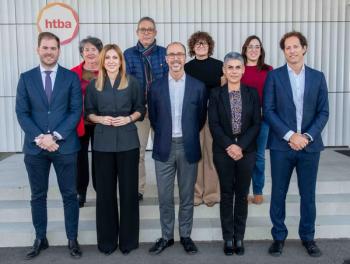
Company Offers Global, Non-GMO Supply-Chain Resource
A company called Global ID Group announced a new network of services called the Non-GMO Global Framework.
Non-GMO talk is at a high, and Natural Products Expo West was no different. Even as the show began, news trickled in about Smart Balance ditching the use of GMO oils from its line of spreads, and grocery store chains Kroger and Safeway now refusing to sell GMO salmon.
Among the non-GMO products at Expo West, a company called Global ID Group announced a new network of services called the Non-GMO Global Framework. As Ken Ross, CEO, of the Global ID Group, explains it, no other company offers this comprehensive a set of services exclusively dedicated to the non-GMO supply chain. Services include GMO testing, sourcing assistance, and advice on international GMO regulations. Plus, the company’s SupplyTrak Supply Chain Compliance software helps companies to monitor their global supply chain to ensure non-GMO compliance.
“We brought all of these pieces together into an integrated program in the most cost-efficient and effective way,” says Ross.
Perhaps one of the most valuable parts of the program is helping companies make sense of all of the global regulations surrounding GMO. “I’ll give you an example of how it works,” Ross explains. “Say someone has a product they want to sell in Europe and Japan and maybe in the United States, as well. They can come to us and say, what do I have to understand about the differences in regulations in order to formulate my products and test them to get to a GMO threshold that would make the product acceptable in all those markets. So, we say, tell us the markets you want to go into, and we’ll tell you the highest common denominator. If you meet all these targets, your product will be viable in all those markets.”
What makes Global ID qualified to dispense GMO advice? Well, for one, the company helped cofound the Non-GMO Project here in the United States and was the Non-GMO Project’s first technical administrator, helping companies get their products verified under the Non-GMO Project Verified seal. “Our FoodChain ID subsidiary has helped over 1,200 companies and 16,000 suppliers get over 10,000 products and 38,000 ingredients verified under the Project Standard,” the company says.
The Non-GMO Project is a domestic program, but Ross says Global ID’s Non-GMO Global Framework has a more extensive reach. Helping companies make sense of all of the individual GMO regulations out there is important, especially as GMO continues to heat up as a global issue. It’s easy to see how making sense of different countries’ individual GMO policies gets confusing quickly.
“In Europe, while the EU allows GM feed, there are about a dozen labels unique to different countries that are very similar to the Non-GMO Project in that they don’t allow any GM feed, enzymes, and substrates,” Ross explains. “So if you want to just comply with the normal European regulations, that’s one thing. If you want to comply with these more stringent seals, that’s another thing. And then a third thing is that individual retailers in Europe have some of their own programs or policies.”
Even among the EU countries, there are very differing attitudes about GMOs among the consumers, he explains. “Spain is more pro-GMO. Holland tends to be fairly pro-GMO. France and Germany and Austria and Switzerland consumers are very strongly pro-non-GMO.”
And, Ross pointed out, even if a company is manufacturing its product domestically, global supply chains likely mean that an ingredient could come from a GMO producer overseas.
I also asked him about the GMO-labeling issue here in the United States. “Someone asked me this question yesterday: Did the food companies and the biotech industry make a mistake by not labeling food from day one, and saying, this contains GM ingredients and then singing the praises of what they think is positive about GE? So, now they’re in the position of looking like they’re hiding something from consumers. How do you win on that issue of denying people the right to know? It’s a losing proposition.”
Editor-in-Chief
Nutritional Outlook magazine jennifer.grebow@ubm.com
Newsletter
From ingredient science to consumer trends, get the intel you need to stay competitive in the nutrition space—subscribe now to Nutritional Outlook.





